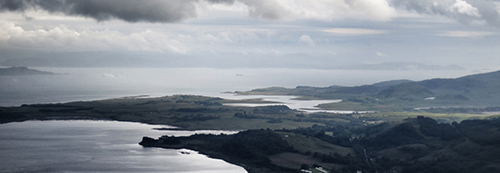Back in the winter of ’93 – sounds like a song – I took a phone call from Campbell McDougall of the Glasgow Royal Concert Hall. I was then in the old BBC Scotland HQ at Queen Margaret Drive in Glasgow’s leafy West End. GRCH were looking to diversify at a time when wall-to-wall pantomime dominated the city landscape and alternative entertainment was simply unavailable.
What, pray tell, was Campbell proposing? The mere possibility of a Celtic Music Festival in the dark weeks of January as a break from pantomime Dames and Principal Boys! Sounded good to me as the Presenter of the early evening programme on BBC Radio Scotland—and negotiations began.
The Director of GRCH, the late Cameron McNicol was sceptical but interested, and the need to look elsewhere was not without a high priority. GRCH did not do pantomime! My first act of being asked to furnish a festival template was to get on board my then Radio Producer, Donald McInnes who brought to the table excellent background knowledge and a considerable awareness of the hot acts of the Celtic world, acts which would sit most comfortably in a Glasgow winter festival.
Lots of people in the business thought we were quite frankly bonkers, but there was a serious confidence back at the ranch that Celtic Music was on a cusp and that its links with what has now become known at Americana were both profound and fascinating! Hence the prospect of a developing audience.
Lots of things to consider; first, the music content of course but also the promotion of such a festival. What might it be called? Should it have a logo? How long would it last? And the 3 performing spaces within GRCG were all significantly different. Where ought the various acts be placed?
In the middle of all this, we lost Campbell McDougall – how and why I know not – consulted with Mark Sheridan, then Head of Music at Strathclyde University and made the acquaintance of Colin Hynd of GRCH – who was to become the future Festival Director. However, for the time being Anderson and McInnes were calling the shots and the following were the Artists who took to the several stages in the January of 1994 to fulfil the first edition of what was to become known as Celtic Connections. (Full details on the web site). Www.celticconnections.co.uk under History.
The first Festival had been a year in the making during which time the BBC had sought a change in their radio scheduling. My evening programme had now become the afternoon slot and was to be called Mr Anderson’s Fine Tunes, mixing classical and Celtic music. In the January of 1994 at the first Celtic Connections Festival, there were several live editions of the programme during the course of an afternoon with an audience who enjoyed free admission to various great acts.
This was an initiative which continues to this day and which has been hugely successful, although the tenure of the Fine Tunes is sadly no more. The author’s current programme now provides a late night format, and the wee small hours are his only remaining refuge!
However, 20 years ago, the acts that we had set some store by were Cherish The Ladies and The McGarrigles, neither of whom had ever appeared in Scotland before. The later, of course, were pretty well known; their discs had been receiving regular airplay for many years. The McGarrigles had been widely recognised with awards and critical acclaim for their bittersweet original songs of love and loss. Their roots were vaguely Irish, but they were bilingual, French and English, having been brought up in Montreal. But now it was Glasgow’s turn, and Glasgow just loved their delicate delightful performance. The reception was great and one box had been well and truly ticked!
Cherish The Ladies (back in Glasgow this year) are an Irish-American all female band who had attracted our attention from their sole CD, which we had played regularly on the evening programme. They were led by Joannie Madden, who was immediately granted Scottish Citizenship and now rejoices in the name Chief Cherish. She also plays flute, introduces the band, confers with the audience, and has been known to step dance to some acclaim.
They were first up, opening for the great Irish band De Danaan, a combination of male and female virtuosity. But there was a problem! Actually quite a serious problem. Cherish The Ladies set the bar so high that even a band with credentials such as De Danaan found it hard to get their noses in front. “Cherish The Ladies,” said a slightly inebriated Glasgwegian who had never set eyes on them before. “Cherish the effing Ladies——–wow!”
In the last two decades these Ladies have missed the annual Glasgow gig only once. Their name is indelibly linked with the festival known as Celtic Connections and in the January of 1994 Donald McInness and I had ticked another box.






